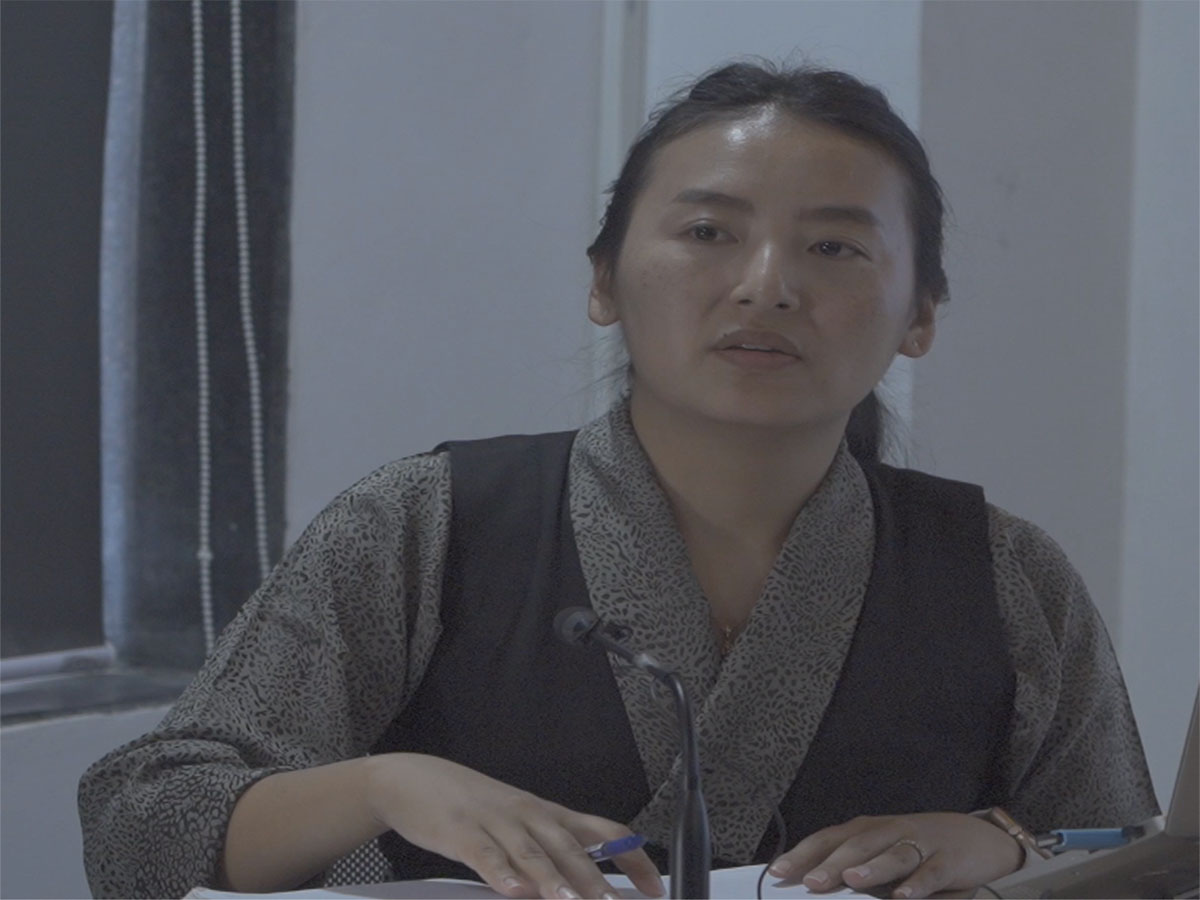The Tibet Awareness talk series program report: ‘Museum : Constructing Soft Power in Exile’

The Tibet Museum’s third monthly Tibet awareness talk series was held on 28th October 2022, in the Museum’s auditorium. Dr. Tenzin Lhadon, research fellow at the Tibet Policy Institute of Central Tibetan Administration presented on the topic “Museum: Constructing Soft Power in Exile”.
Before delving into case studies, she commenced by elucidating the very theory of “Soft Power”, its origin, significance and its relevance in the context of the Tibetan struggle. The speaker added that the ability of a country to persuade others to do what it wants without force or coercion is now widely invoked in foreign policy debates. Nevertheless, she acknowledged the equal need of both hard and soft power to shape long-term attitudes and preferences of any nation state.
Speaking about the various mediums and platforms for achieving the goals of “soft power”, the speaker highlighted the role of Museums as a beacon of soft power, the most impactful among all. She stressed that museums, unlike conventional educational institutes where creating awareness is seen as a prime objective; Museums increase responsiveness, adds pride, and most importantly is an effective space to form opinions about a country. By annotating the United State’s attempt to create a distinction between Communism and Democracy during the cold war through museums, the speaker stressed on the Communist Party of China’s similar approach in spreading propagandas through Museums, in our context, the Tibet Museum in Lhasa, Tibet.
The Chinese leadership having realized the importance of Museums to disseminate information, they have used the Tibet Museum in Lhasa to emphasize the development in Tibet, to accentuate the distinction between old and new Tibet, and most importantly to push the communist party’s narrative of peaceful liberation. According to the speaker, it is not only museums that are potential units of soft power but learning centers such as Confucius institutes also play a crucial role in propagating state narratives.
Dr. Lhadon also presented a brief case study on the United State’s Holocaust museum and its pivotal role in transferring memory, educating people and narrating the experience through survivors. In addition to that, she emphasized the Tibet Museum of the Central Tibetan Administration in Dharamshala, as a epicenter of soft power to debunk the grand narrative of the Chinese communist party. The speaker also suggested the significance of expanding the network and collaborating with other institutes and organizations with similar interest.
The speaker concluded by briefly touching upon the recently published article “9 cameras on you, empty boxes and a Little Red Book—The Tibet Museum in India is a must-visit “ by Neera Majumdar, the assistant editor of the Print newspaper. Having a clear apprehension of the term ‘Soft Power’, the presenter appreciated the strategic curation of the Tibet Museum and how impactfully the message is being conveyed to the visitors through the exhibition theme “I am Tibetan and this is my story”.
The discussion that followed after the presentation was notably interactive and the participants actively took part in question and answer rounds.
Reported by – The Tibet Museum.
